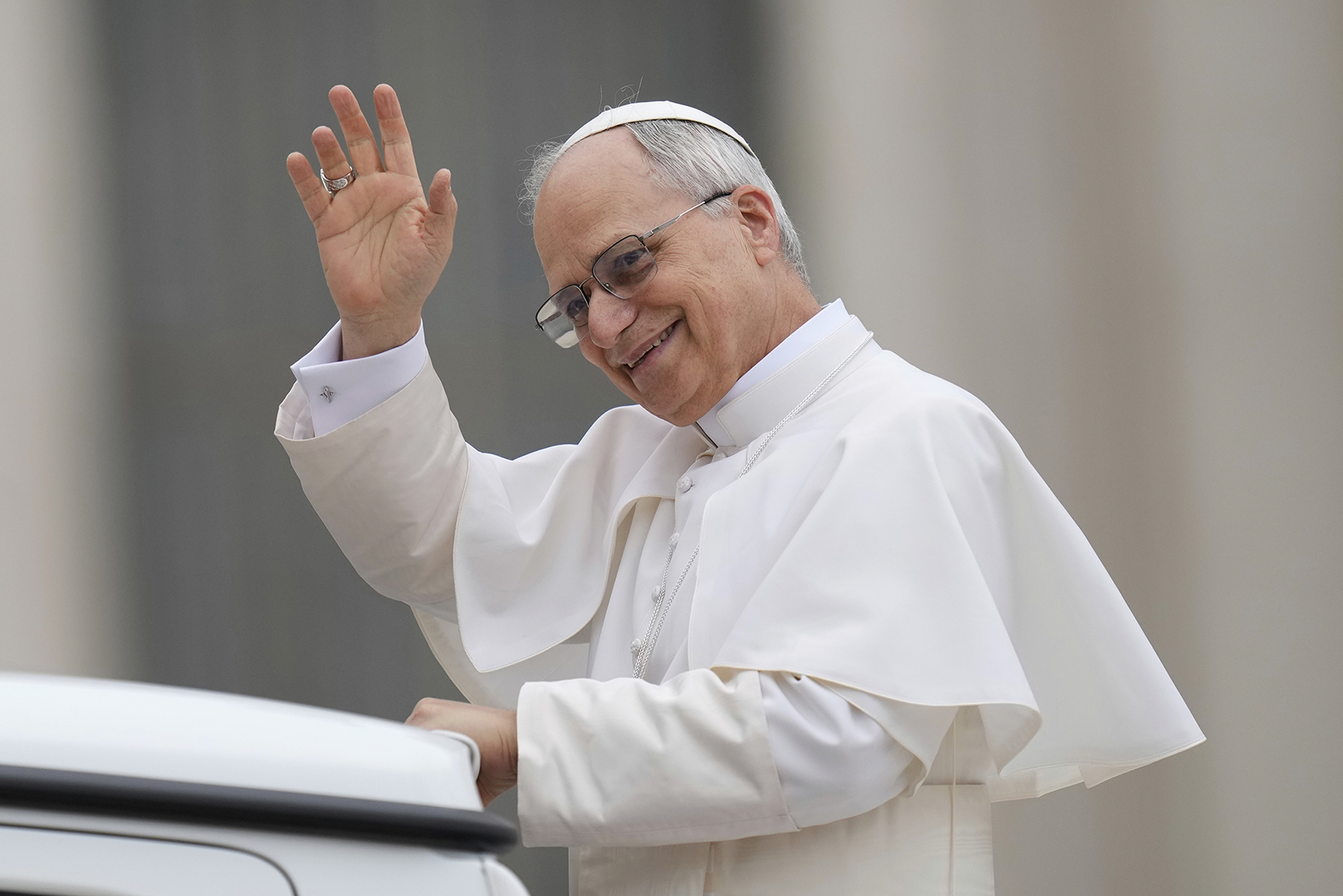
(RNS) — As an American Baptist clergyperson I am noticing an interesting phenomenon in my social media feeds: Protestants gushing about Pope Leo XIV.
It took me a bit by surprise, considering these traditions have longstanding theological critiques of the Roman Catholic Church generally, and the papacy specifically. However, it points to an interesting premise. As denominational affiliations and theological quibbles fade, the election of the new pope represents a change in the most visible leader of Christianity. Mainline Protestants now at least seem broadly willing to acknowledge his opinions will shape the face of Christianity far beyond the Roman Catholic Church.
In my own circles, leaders from the Cooperative Baptist Fellowship and the Baptist Joint Committee on Religious Liberty issued statements calling for prayer and cooperation with Pope Leo. In the worship service I led the Sunday after his election, there were plenty of prayers for Leo, and even some genuine excitement about his papacy. And as a pastor in the Chicago area, I can confidently state there is considerable excitement about the fact that Pope Leo hails from the Windy City.
Likewise, at an ecumenical meeting I was in post-papal election, one Methodist summed up a lengthy conversation by saying Leo “is just the spark that we needed.”
Perhaps some of this shift can be attributed to the fact that Leo’s election was must-watch TV, as millions of Americans tuned in to see the white smoke and find out who would be elected the leader of the church’s 1.4 billion adherents. The ancient conclave rituals and carefully choreographed process drew in many who wished to be a part of the historical moment.

Swiss Guards march after a new Pope was elected when 133 cardinals gathered on the second day of the conclave to select a successor to the late Pope Francis, at the Vatican, Thursday, May 8, 2025. (AP Photo/Markus Schreiber)
Still others, particularly progressive Protestants, might be drawn to the pope’s choice of name, a nod to his commitment to Catholic social teaching. And it doesn’t hurt he is on record calling out the present U.S. administration’s immigration policies and championing the rights of the vulnerable in society. For example, the Rev. Robert Lee, an American Baptist Churches USA and Alliance of Baptists pastor based in North Carolina, offered his prayers for the pope and said, “Despite our varied disagreements across denominational lines, we’d all do better to offer each other support in ways we are able. I am looking forward to the ways that Pope Leo will continue to champion the migrant, the dispossessed and healing for those regions torn apart by war.”
That sentiment was echoed by the Rev. Timothy Seery, a United Church of Christ pastor in California, who said:
I am excited and optimistic about what Pope Leo XIV represents and embodies with his international perspective and prophetic witness in ministering to oppressed and marginalized communities. As someone who ministers on the U.S./Mexico borderlands, having a pope who transcends borders and is an American with deep Latin American roots is meaningful to me especially in these times where some want to build walls to divide us.
This level of support is all the more intriguing because both Baptists and Congregationalists are part of what might be termed low-church Protestantism, which has historically had some of the most strident critiques of the Roman Catholic Church and the papacy. Baptists historically used the term “antichrist” to describe both the office of the papacy and the person who occupies it — a view enshrined in some of the founding documents of the tradition. The same is true of Congregationalists.
While it might not surprise some to see liberal mainline Protestants praising the pontiff’s election, the reaction from the evangelical world has also been rather warm and cooperative, if more muted. While some were quick to call the pope “woke,” others, such as the Rev. Samuel Rodriguez, the president of the National Hispanic Christian Leadership Conference, saw his election as “a reminder that faith is for all people in all places and that the gospel is an invitation to us all.”
And whether mainline Protestant warmth toward the new Holy Father is a result of convergence on social justice issues or pride in the fact that he is American, or because the election of a new pope is just plain cool to watch, it has the potential to reshape a landscape dominated by bitter theological critique for centuries. That softening and a turn toward ecumenicalism has been in the works for a long time, but at least on my social media feed, this moment feels different.
While no one is saying it’s time to formally endorse Pope Leo XIV as the head of Christians worldwide, mainline Protestants at least are looking to the Holy See if not for leadership, then inspiration. The policies and ideas that the pontiff espouses during his papacy will affect much more than the Roman Catholic Church — they will shape the imaginations of the world’s Protestants for years to come.
(The Rev. Michael Woolf is senior minister of Lake Street Church of Evanston, Illinois, and the author of “Sanctuary and Subjectivity: Thinking Theologically About Whiteness and Sanctuary Movements.” The views expressed in this commentary do not necessarily reflect those of Religion News Service.)
